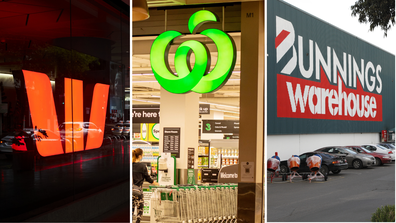Young women are leading changes to systemic issues plaguing workplace culture while young men are skewing more conservative, an expert says.
According to the Workplace Gender Equality Agency (WGEA), there is a 21.8 per cent gender pay gap in Australia, which means women earn 78 cents for every dollar men earn.
It equates to women earning an average of $28,425 less each year.

It says many factors are to blame, including discrimination and bias in hiring and pay decisions, women’s disproportionate share of unpaid caring and domestic work and female-dominated industries and jobs attracting lower wages.
But there’s been a shift over the past few years.
Future Women founder Helen McCabe attributes this to a growing number of young women entering the workplace and refusing to tolerate forms of inequality.
“Younger women are definitely driving reform in organisations because they won’t put up with what older generations of women put up with,” she said.
“Older generations of women are kind of thinking ‘it wasn’t like that in my day and it’s not all that, you should just get over it and move on, he’s not that bad, he didn’t really mean anything by it’.
“It’s a really interesting time that we’re having and the conversation is quite fascinating.”

Gender pay gaps of some of Australia’s biggest companies revealed
WGEA, however, has reported that progress to end the gender pay gap is happening after 56 per cent of employers improved their disparity in the 12 months to March.
And, as changes are made, young male workers are no longer guaranteed the privileges they have been accustomed to seeing older men receive, McCabe said.
“The structural underpinnings of society have always been the boys get the job, get more pay, marry a woman who has children and do the stay-at-home work. That they are more likely to get the promotion and more likely to run the company and more likely to run the country,” she said.
“That has shifted and it’s not automatic anymore. If you add quotas or targets to the mix, and you’re a talented young man in a law firm, you’re up against talented young women in a law firm right now.”
Future Women hopes to change that and help men and women navigate workplaces.
“I think one of the things that we do at Future Women is really embrace the opportunity to bring men into the conversation and help them be better leaders of men and women, and that improves the work the workplace for everybody,” McCabe said.
Inside a room at one of the organisation’s events are women from the public and private sectors across industries like finance, business and politics.
“I find when we’re in the room, that combination is really powerful,” McCabe said.
So far, she said the response has been “amazing”.
“They’re hungry for more content. They’ve got more opportunities to connect,” McCabe said.
Future Women is part-owned by Nine, the publisher of this website.






